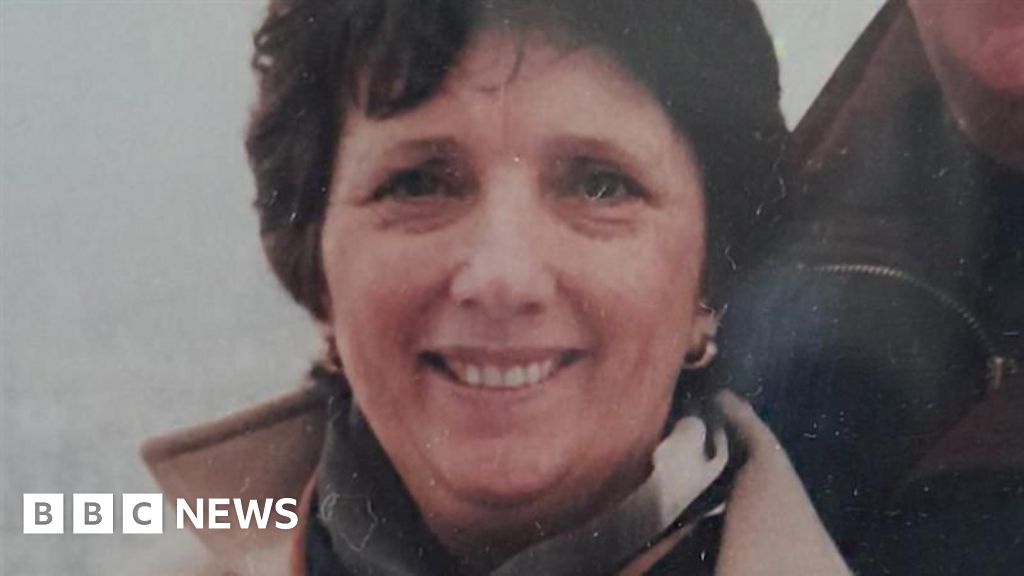A woman who took her own life while on a mental health ward had been threatened and bullied by staff, her family told a public inquiry.
Iris Scott, 73, was a patient at the Crystal Centre in Chelmsford, run by the Essex Partnership University NHS Foundation Trust (EPUT) mental health services provider, when she died there in her bathroom on 1 March 2014.
Her children gave evidence to the Lampard Inquiry, which is examining more than 2,000 deaths at NHS-run inpatient units in Essex between 2000 and 2023.
They told the inquiry they had “grave safety concerns” about her treatment. EPUT said it would “build on the improvements that have already been made over the last 24 years”.
On one occasion their mother told them a staff member threatened to keep the lights on to prevent her sleeping if she did not “stop complaining” and another deliberately blocked her path in corridors.
Mrs Scott initially agreed to a three-week “quick fix” inpatient stay in August 2013 after suffering from “unmanageable anxiety”, her children said.
However, her condition worsened during six months on the ward and her family told the inquiry of what they considered to be “failings” regarding her care plan, treatment by staff, the ward and risk management, which they believed contributed to her death.
Her son, Craig Scott, said there had been “zero accountability”.
Her daughter Dawn Johnson said when she raised concerns that her mum had voiced wanting to end her life in November 2013, the ward manager had been dismissive.
“She just said I was being a paranoid daughter and nothing was going to happen on that ward,” Ms Johnson told the inquiry, being held at Arundel House in London.
“She went so far as to say if you didn’t calm down you’d end up on the ward as well,” added Rachel Troup, counsel to the inquiry.
Due to ongoing issues, Ms Johnson and her mother began keeping diaries of incidents and interactions with staff, which she believed showed her mother’s fear.
On 14 January 2014, Mrs Scott tried to take her own life, resulting in “significant” bruising around her face, her children said.
Her family were not informed and were told she had a fall when they questioned staff about her injuries.
Ms Johnson said her mother confided she had been trying to take her own life but this was rejected by staff who said Mrs Scott was “attention seeking”.
They insisted she had a fall, but said they were increasing observations, the inquiry heard.
Two days later, Ms Johnson’s children found her setting up a ligature in her room in the same way she had reported.
Despite being placed on a higher level of observation and a search of her room, her daughter found items for a ligature in her wardrobe, which she said prompted more concerns from the family about the competency of staff.
In response to the attempt to take her life, Mrs Scott reported that the ward manager told her she had “overstepped boundaries” and “gone too far”, according to her family.
Ms Johnson said her mum had been “blackmailed” by staff who threatened to “reveal something about her” if she did not change her story about the events on 14 January.
“Mum said she felt pressure to change her story,” Ms Johnson said.
“She was frightened.”
Mrs Scott’s observation level was reduced in late February, and she died on 1 March after using a ligature in her bathroom at the unit.
Asked what she felt should have been done differently regarding her mother’s care, Ms Johnson replied “everything”.
Mrs Scott’s family added they hoped any recommendations for change were checked thoroughly to ensure they were complied with.
“Had they [ligature points] been removed after mum’s death maybe people who died the following year might still be here,” Ms Johnson said.
“Mental health has become more in focus since mum’s death but is there a real desire to take these recommendations and others more seriously?” Iris’s son Craig Scott added.
Paul Scott, chief executive of the mental health trust, said: “My thoughts are with Iris’s family and loved ones and I send my condolences both personally and on behalf of the trust.
“As the inquiry progresses there will be many accounts of people who were much loved and missed over the past 24 years and I want to say how sorry I am for their loss.
“All of us across healthcare have a responsibility to work together to improve care and treatment for all and to build on the improvements that have already been made over the last 24 years.”
- If you’ve been affected by the issues in this story, help and support is available via the BBC Action Line
Source link : https://www.bbc.com/news/articles/clygn53d35go?at_medium=RSS&at_campaign=rss
Author :
Publish date : 2025-10-21 09:46:00
Copyright for syndicated content belongs to the linked Source.
